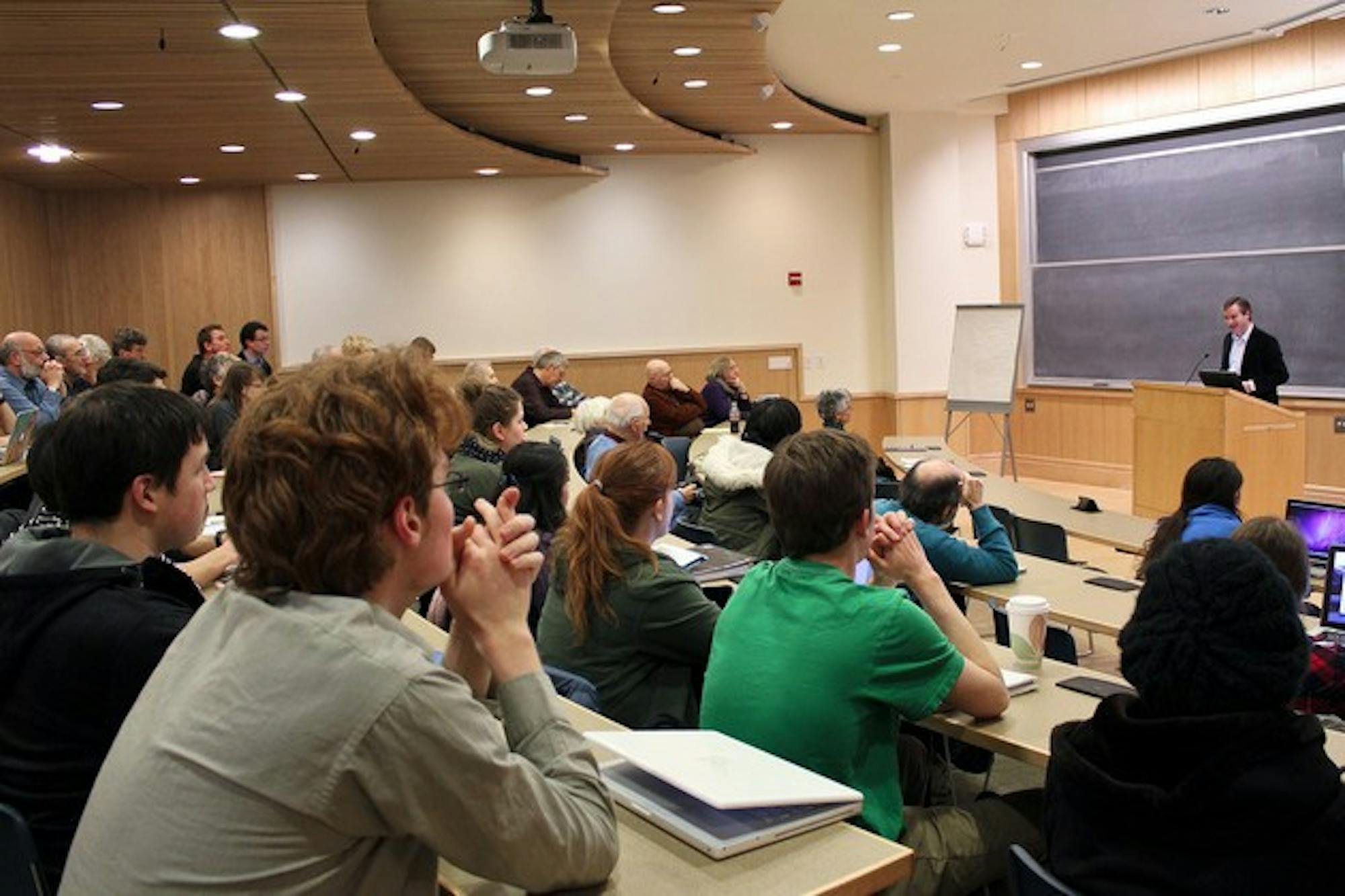Rothberg's lecture focused on his research with University of Illinois German professor Yasemin Yildiz and independent scholar Andres Nader. He described the efforts of several Turkish-Germans to connect more closely to the Holocaust and German identity. Hakan Savas Mican's play "Der Besuch" and Anny and Sibel Ozturk's artwork "Das Leben, Das Universam und der ganze Rest" provide two examples of German migrants inheriting consciousness of the Holocaust.
"Das Leben" focuses on the history of modern Germany through both global and Turkish-German perspectives, Rothberg said.
"It's a mix of their family history and world history," Rothberg said. "There's a juxtaposition of Warsaw and Istanbul, of the post National Socialism and post migration."
A central part of "Das Leben" is a painting of one of the artists standing next to the figure of Hitler, representing how the Holocaust continues to influence Europe and those who live there, Rothberg said.
"The legacy of the Holocaust is the framing condition for immigration," he said. "By layering German history with migrant history, it challenges people to rethink the idea of memory beyond the ethnic boundaries and the binary of victims and perpetrators."
"Der Besuch" describes the tensions between a Jewish couple that recovers the land their family lost during the Holocaust and the Turkish man who currently owns the land.
Rothberg discussed other reflective projects such as Serdar Somuncu's reading tours of Nazi propaganda, in which he uses humor to mock Hitler, and Turkish language tours of concentration camps.
Rothberg's lecture contributes to a debate in Germany over whether Germans should feel accountable for the Holocaust. A recent study found that the grandchildren of Germans who were alive during the Nazi regime are less willing to feel blame or admit that their families were involved, Rothberg said.
"They mentally turn family members who may have been Nazi sympathizers or perpetrators into anti-Nazi resistors," he said.
Rothberg said that works such as "Das Leben," "Der Besuch" and Somuncu's comedy show that the extent to which Germans take responsibility for the Holocaust depends on generational changes and how the media portrays the Holocaust's relationship to modern Germany.
Rothberg also said both "Der Besuch" and Somuncu's performances use humor to convey their messages, which some may consider distasteful.
"Comedy is a dangerous realm," Rothberg said. "It's a matter of taste and tact. In the German context, you can't escape the seriousness of history."
Somuncu received permission from the German government to read aloud sections of "Mein Kampf" in his performances, since it is illegal in Germany. Somuncu had to prove that his work would not be mistaken as praise for Hitler's ideas. Somuncu received death threats from neo-Nazis and often has to wear a bullet-proof vest while performing, Rothberg said.
German and comparative literature professor Irene Kacandes, who selected Rothberg for the annual James Hoffman Memorial Lecture, said that Rothberg's work aims to use literature as a means for social change.
"It lined up with the idea of social responsibility and social justice that we are looking for," she said.
Kacandes said she enjoyed the lecture and found the angle that Rothberg took "incredibly important."
Rachael Siegel '14 praised Rothberg for employing a variety of art forms to discuss the relationship between German migrants and the Holocaust.
"Both the photo collage and the readings of Mein Kampf' were really interesting," she said. "I enjoyed his idea of the use of comedy as a way of connecting people to the Holocaust."
Spanish professor Rebecca Biron said she thought the lecture was relevant to today, since migration is an important cultural issue.
The lecture, titled "What Does It Mean to Inherit the Past? Holocaust Memory Through the Migrant Lens," was sponsored by the comparative literature program, the Jewish studies program, the French and Italian department and the German studies department.




